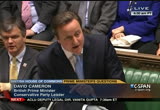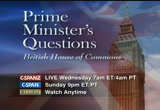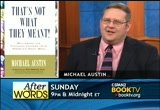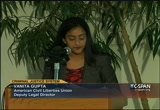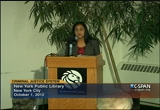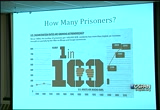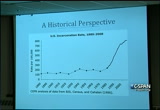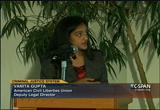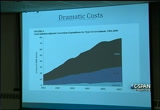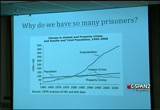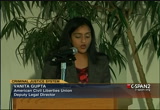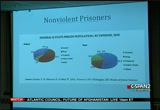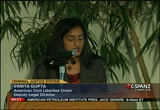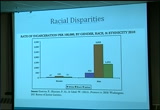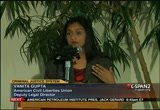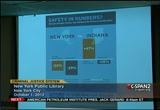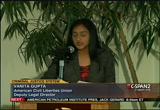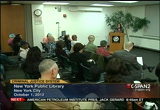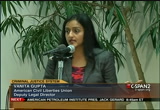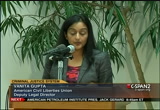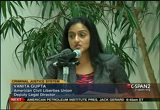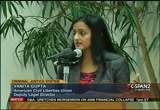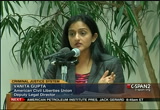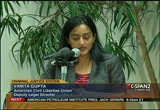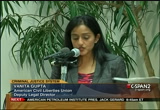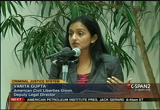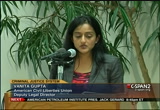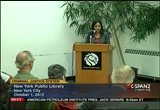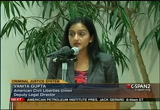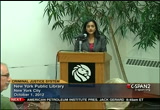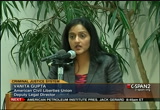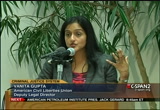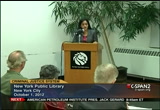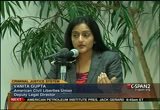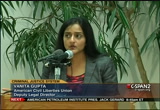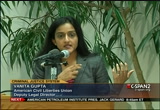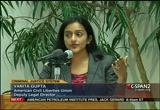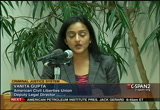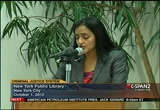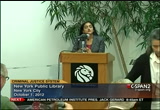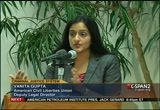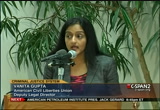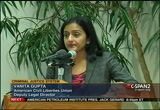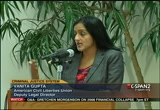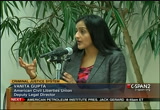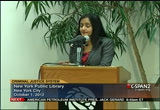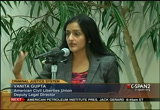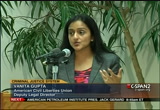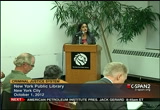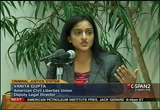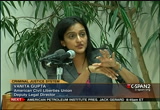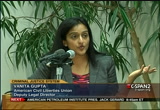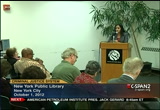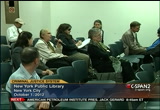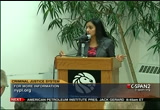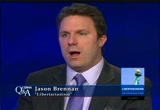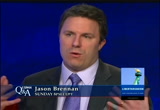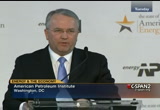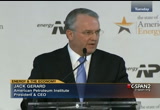tv Today in Washington CSPAN January 9, 2013 7:30am-9:00am EST
7:30 am
for health received a report recommending the downgrading of maternity services and closure of the department at louis gee hospital. does the prime minister recall the coalition promised to end the fourth closures of maternity services? if this is not to be on a list of broken promises, will he ensure that these closures do not go ahead? >> what the government and i specifically promised is there should be no closures, no reorganization's unless they have the support from the g p commissioners, proper engagement and evidence based. let me be absolutely clear. unlike the last government when the closures and changes were imposed in the top down way, if they do not meet those criteria they will not happen. >> the prime minister will remember that this house gave the green light to stem cell
7:31 am
research some years ago but we now find the court of justice of the e.u. is hindering progress by bringing into question the validity of the patient protecting research. will the prime minister do what he can to clear this blockage on behalf of millions of people in this country who suffer long-term medical conditions? >> my hon. friend makes an extremely serious point and i will look closely at it because it is a competitive advantage we have in this country that we took difficult decisions about stem cell research. is important that we continue to lead in that area not only as he says for economic and scientific reasons but because we want to make sure long-term conditions, debilitating conditions, children with a disability and other concerns that we crack those problems for the future and without that level of research i don't believe we will. i will get what he says and write to him after. >> is the prime minister proud of the growth of super pacs
7:32 am
across this country including my own constituency and if not, will he? >> i am proud of the fact that in this country there are a million more people in work than there were when i came to office. we have made sure the lowest pay are not paying income tax, we protect the poorest families in our country. i am proud of all of those things but unlike him i don't look down at or talk down to people who work hard in our communities to help people. >> order. order. order. statement -- >> here on c-span2 we will leave the british house of commons as they move onto other legislative business. you have been watching prime minister's question time aired live wednesdays at 7:00 a.m. eastern while parliament is in session. you can see this week's question time again sunday night at 9:00 eastern and pacific on c-span. for more information go to c-span.org and click on c-span ceres for prime minister's questions plus links to
7:33 am
international news media and legislatures around world. you can also watch recent video including programs dealing with other international issues. >> i think that's collective of the minds of america's founding fathers is particularly dangerous because as i say so often in the book they were not a collective unit. presenting them as such tends to dramatically oversimplify the politics of the founding generation and come to use as a big battering ram to beat people over the head with in ways that are historically incoherent and unsound. >> university proposed an english professor michael austin on what he calls the deep historical flaws by conservative commentators and their use of america's founding history. he shares those views with stores washington university
7:34 am
associate professor david montana on booktv's afterwards sunday at 9:00 p.m. and midnight eastern on c-span2. you are watching c-span2 with politics and public affairs weekdays featuring live coverage of the u.s. senate. on weeknights what the public policy events and every weekend latest nonfiction authors and books on booktv. you can see past programs and get our schedules and you can join the conversation on social media sites. >> deputy legal director of the american civil liberties union recently discussed the u.s. justice system at the new york public library. topics included mandatory minimum sentencing rules, prison overcrowding, the death penalty and racial disparities and incarceration rates. it is an hour and 10 minutes. [applause] >> good evening. thank you all for coming here
7:35 am
this evening and thank you to the new york public library for inviting me. i am going to talk today about incarceration and the united states, necessarily detailed conversation about racial justice. i am going to talk about it through the lens of my own career path as an advocate for criminal justice reform who has worked national impact mitigation outfit and organizations my whole career. the evolution in my own thinking and strategies i work and use and employed to achieve criminal justice reform in some ways mirror the art of this issue in this country over the last ten years and i will explain that a little bit. as many of you know over the last 40 years the united states has adopted a tough on crime criminal-justice policymaking which has been characterized by overcriminalization,
7:36 am
increasingly draconian sentencing, as incarceration of impoverished communities of color, law-enforcement incentives aimed at the number of arrests law-enforcement makes rather than quality of the arrests, racial profiling and rapid prison building some of which has entailed huge pockets for private companies in this country. as a result the united states incarcerate almost a quarter of the prisoners in the entire world, we have only 5% of the world's population. war on drugs which is a term coined by president nixon 40 years ago has not only exponentially increased the number of people behind bars through altering law-enforcement priorities and incentives but also promoted sentencing reform policies that have kept people in prison for dramatically longer periods of time and this has largely been over the last 4 years as a result of a lot of lawmaking by anecdote. when you hear about what named after individuals usually is in response to a terrible crime
7:37 am
that has been committed but often has far reaching consequences far beyond what lawmakers even conceive of when they enact this kind of legislation. you see that with the polyglot murdered resulted in three strikes which is now under a ballot initiative in california to reform it after a decade-long experiment in a law that is expanded beyond california's prison population. meghan's law and a series of laws that have been much wide reaching implications than had originally been intended by legislators. the change in sentencing policies has created a new normal. for those of us in this room we hear about people getting 25 years sentences, 25 years to life and you don't blink at it because it is the american criminal justice system and what we are used to and yet in comparison with sentencing policies around world, the
7:38 am
united states is far disproportionate in its sentencing. i will show you a few charts and graphs to give the background and talked-about cases that i worked on immediately after law school that really give some -- allows for a human story in a way that humanized what is going on in the criminal justice system and why -- relying on litigation today is a short-sighted way to which the reform. how many prisoners -- let me walk you through a little bit. you will see how the extent to which there has been a massive expansion in the prison population and remains relatively flat for quite some time. the u.s. imprisonment rate today is about 1 in 100 adults will end up in prison behind bars and it is a far lower rate, one in 33 will end up in some form of correctional supervision meaning
7:39 am
coral, or prison. the highest in the world that seven times higher than it was in 1972 and one of my colleagues, michele alexander who writes that if we want to return to incarceration rates at a time in 1970 we would have to release four five prisoners in this country today. with 2.3 million people behind bars the u.s. house's 20% of the world's prisoners. this is the long view. incarceration rates are relatively flat for 90 years before 1970. what changed? as i mentioned, 1970 marked the official declaration of the war on drugs but we also had with it a series of laws that were enacted in the 80s in particular that really expanded our prison population. we had mandatory minimums that set a standard where removing judicial discretion discretion for judges can sentence
7:40 am
individuals based on the effects of a crime based on a person's background. that took away a lot of judicial discretion. a lot of judges around the country today would like to see an end to mandatory minimum sentencing. still wanting to keep within a guideline to understand, to have some kind of marker and guidance how they could sentence on a grid but to not have their hands tied to be unable to let individual fact in a case to sentence people. you had three strikes in california and places around the country where lawmakers enacted three strike laws that allow for a ballooning of the prison population. you could have a simple felony resulting in at a third strike in lots of parts of the country and in non violent strike leading to a life sentence and there's a lot of movement in the reform but i will start talking about and movement which
7:41 am
basically were laws that were passed in state ronnys and 90s, mainly in the early 90s, there was a feeling in the country when people got sentenced to a term that they were not serving out the term, getting rolled out so a lot of lawmakers as part of the tough on crime movement enacted tough on crime, truth in sentencing laws to mandate a person would serve 85% of their sentence before they would be eligible for parole. that again saw a huge exponential increase in the number of people in prison. there are two factors fueling the prison population, one is the number of admissions into prison and a second is the length of time people are staying. it has been a dramatic increase over the last several decades. so you have a 400% increase in the last 30 years, 500,000 to 4.3 million prisoners.
7:42 am
if you look at how we stack up against the the developed countries is not even close. we are five times, incarcerate five times higher rate, 6.5 times higher rate than japan and you can see where we fall and how far afield we are, the last line on this chart. there are dramatic costs aside from the tremendous human devastation the system has roth, there has been increased conversation around the cost of the system and i will talk about that in a little bit. today state, local and federal corrections cost $70 billion annually. in 1980 we spent $18 million. corrections are the second fastest-growing category of state budgets behind medicaid. 90% of that goes to prisons. corrections now account for one of every 15 general fund
7:43 am
discretionary dollars which as you can imagine a time of severe budget shortfall is a significant amount. prison spending has forced us to cut our spending on other important areas and you will see years that as correction spending has risen, public assistance has fallen sharply. in education too throughout the 90s several states were spending much more of their state budgets on corrections and prison building than they were on higher education. california and texas are two states doing just that. why do we have so many prisoners? one could say there was in the late 7s a rise in violent crime and a series of laws that initially had been passed in response to that but what doesn't make sense if you look at the chart you will see incarceration rates were rising at such a high amount even as violent crime, actually diminishing. when i talk about an addiction
7:44 am
to incarceration and talk about it in the context not just of traditional crime and criminal justice but also in the area of education. for those of you in public schools, you know that public schools around country have become increasingly criminalize. the simple principle of this venereal or behavior problems now can result in an arrest and entry to the juvenile justice system. immigration for lack of federal immigration solution, we have increasingly relied on enforcement and the tension and a lot of the same players who operate in the immigration detention context, those operating in traditional criminal-justice. so the war on drugs is a major driver of mass incarceration. doesn't explain all of it but 25% of the prison population are in for nonviolent drug offenses. another 25% in for nonviolent
7:45 am
7:46 am
>> the right craft is of state prisoners were about half were nonviolent. as i mentioned, part of what is explained the length of prison is the length of stay, the amount of time that people are serving in prison right now. you will see on this chart that we have longer sentences are a huge reason why we have so many more prisoners today. this graph shows the increase in time served since 1990. there's a 37% increase in time served for violent crime. 824% increase for property crime, and a 36% increase for drug crime. in the last 20 years, i don't know how many of you have been following, but most recently in the most recent supreme court term there was to cases that actually invalidated mandatory juvenile life without parole. life without parole has become a very popular settings. we have people in this country,
7:47 am
and the aclu is actually working on a report document the number of people who are serving life without parole sentences for nonviolent offenses. this means from the date they get convicted and sentenced they will never see, they won't having access to april hearing to demonstrate whether they been rehabilitated in prison for nonviolent offenses. in the last 20 years, the number of lwop prisoners, life without parole prisoners, has tripled to 41,000 people. in georgia only 60% of prisoners who are serving lwop are surfing for serious crime, the most serious crime is murder, but the other 40% are actually convicted of crimes including armed robbery, drug crimes, and in a couple of cases we documented, because of three strikes law, things such as minor as shoplifting. in the past 20 years, the average time served for parole for life sentences grew from 21 years to 29 years. a lot of this sounds like
7:48 am
numbers and a lot of kind of gobbledygook that our eyes can glaze over, but for anyone who knows anything about conditions in prison, each year that we have now expanded onto these sentences is a significant loss of liberty, and the question is who are we mad at, what are we protecting ourselves against when we put people with nonviolent pressures in prison for this amount of time? the racial disparities are staggering and they are present at every level of the criminal justice system. at every stage with any amount of discretion we see racial disparity. so here we see black men who comprise 40% of all prisoners are about seven times more likely to be in prison than white men. hispanic men are three times than white men. one in nine black men between ages of 20-34 are behind bars, and one in 11 black adults is under some form of correctional supervision. the u.s. government reports,
7:49 am
according to their own government surveys, that actually people use drugs pretty proportional to the representation in the populati population. there are about two or three major surveys that show that african-americans use is up about 13%, that you have been white folks that really correlate to the representation in the population. and yet african-americans are four times more likely to be arrested, and 13 times more likely to be in prison for a drug offense. we are currently working on a report documenting marijuana possession arrests rates around the country. marijuana possession occupies and takes up a huge amount of law enforcement resources, and the racial disparities are staggering. and what you have probably been reading about here in new york city around stop and frisk is something that is taking place around the country with a lot less documentation, and that's part of what the aclu is working to document. and that report should be coming out in a few months.
7:50 am
the bottom line is that one in three black men and one in six let you know men will spend some part of their lives in prison. the one thing that we know, and going to talk a little bit about this, is that we know we can actually have fewer producers and less crime. we are currently in the state of new york, the state of new york -- you guys know that. the state of new york has actually been, has had a tremendous success in the populating its prisons. in the last 10 years, new york is actually reduced its prison population by 22%. and has witnessed during this period of time historically low crime rates. so new yorkers really become an example. new jersey as well has reduced its prison population by about 20% and still maintain all time low crime rate. and new york and new jersey and other states like michigan reduced its prison population by 14% in the last several years as a result of a whole host of reform. we know that you can reduce the
7:51 am
prison population and actually get lower crime rate. that is something we are seeing around the country. this chart is one piece of evidence for that. we talk about new york and the model of new york. indiana, on the other hand, between 2000-2010 increased its prison population by 47%, and only saw a reduction in its crime rate of 8%. we know that there isn't, the argument that mass incarceration has lead to safer streets. new york is a shining example of why that is actually not the gospel truth. so enough with all the numbers because i know that you can kind of hear a lot of these numbers and think okay well, you know, interesting, but so be it. but let me tell you a story about a set of cases that it worked on pretty soon after i graduated from law school. for a long time when i was doing this work, i had the belief that if you bring litigation and you
7:52 am
kind of bring thoughtful litigation, you can actually change the criminal justice system. and i called it reform through retail litigation. given us so much criminal justice policymaking was actually driven by fear and emotion, reform advocates had to leverage the emotion in some way to actually get through to the public, to make them care about a system, that frankly, a lot of people have given up on or don't care about. and one lens that has been an effective vehicle for making people care is the lives of innocent. the innocent movement. all of you probably read about cases involving the false conviction or the wrongful conviction of innocent people behind bars. when the system can fix innocent people that certainly makes most human beings uncomfortable, no matter what your stance is on criminal justice and crime. and so my thought was if you could move people by telling these stories, i humanizing the people are impacted by these kinds of policies, we talk about
7:53 am
excessive sentencing through exonerations that maybe you could slow start to chip away at the system of overincarceration. the best example i had was a set of cases that are dedicated in a small town in texas right after i graduate from law school. starting in fall 2001, had just graduated from new york university school of law down the street, as they say. and just months after graduating, i actually got involved. i was at, had a fellowships work at the naacp legal defense fund, and i had gotten his fellowship to drug sentencing and criminal justice reform. i was at a conference and saw documented, about a 12 minute documentary, and what the document should be was that there'd been a small drug raid in a town, in the texas panhandle in 1999, involving dozens of african-americans and about six not african-americans, three latinos, three white, who
7:54 am
had been have a romantic relationship with effort and americans in the small town, all charged and convicted a very low-level cocaine offenses. they had been roused out of bed on july 23, 1999, paraded in front of the local jail in front of the sheriff, the sheriff had called the tv cameras. you saw the local news footage was, of people kind of half dressed, dragged around 4 a.m. at gunpoint by a swat team all dressed in black and entering the jail. and the next day the local town paper ran a piece called the streets are cleared of garbage. and they printed the names and addresses of every single person, all 46 that had been arrested in the predawn raid the day before. it turned out that as i was watching this video want this video want to learn, and again this is two years later, i learned that actually that drug stings have been orchestrated by a man by the name of tom holman
7:55 am
who was kind of a gypsy cop in west texas who had been hired with federal money, money that gets doled out to every district in the country, to basically get rid of their perceived drug problem. he had spent 18 months undercover in this small town, and where he basically was allegedly making buys from people in the community. it turned out that he was, he had no contemporaneous notes. he had no marked money, no wire, no nothing that one would think would actually accompany a properly conducted drug sting. and during the course of this investigation it turned out, 18 months, the swisher county sheriff actually -- it's a county, had arrested tom holman for abuse and theft of official capacity for activities that he conducted in a neighboring town in a prior job. that sheriff apparently did not check the licensing agency, the
7:56 am
agency that actually licenses all police officers in the state of texas, because had he done so he would have revealed, he would've turned up a letter that had been written by the neighboring sheriff saying that this man should never be in law enforcement. if he does, if he does, other people the way he did this down. none of this information that actually had been accumulated prior to the arrest and prior to the drug sting had ever been turned over to any other defense attorneys. the prosecutor knew about. obviously, the police knew about it, but none of that was turned over. and each of the 46 individuals who had been arrested on the word uncorroborated of this man basically had to decide whether they're going to go to trial to try to prove their innocence or plea out. my clients end up, the first seven, ended up going to trial saying that they want to get a fair shake and to prove their innocence in court. and it quickly turned out that they started to get sentences of
7:57 am
20, 40, 60, 90, and in one case 340 years. it was a stacked sentence. they get your more, a hog farmer, if i had enough time, "60 minutes" did a great piece that shows the house of joe maurer, actually a ramshackle hut, the old hog farmer got a 90 year sentence. it was actually, the range was from probation to 99 years, and for some reason the jury saw fit to give him nine years of gree greece. freddie brookings, a 21 year old son of a military man who was going to school, was in college, got a 25 year sentence. he asked his father whether he should take a plea, and his father said, look, if you're innocent need to prove, get your day in court and go to trial and prove it. his son took his word, what to trial word, would you drop into a 25 year sentence instead of a five year plea, the sense that he would've gotten had he play played. the stories went on and on, and
7:58 am
quickly, one can imagine, and i probably most sordid would've done exactly this if i'd been in the same situation, people started to say we can get a fair trial, we are going to start to take please. i do know how many of you nobody get tv makes it seems like ever goes to trial. in the federal system over 95% of the cases get resolved with a plea. very few of them go to trial. in a state system it's not quite as high but it is still very, very high. and so my clients started to quickly, they were my clients yet but they started to take please to basically get lower prison deals because they felt like they could make it a fair trial. again, as i said, the prosecutor did all the evidence about tom holman. there was a mountain of other evidence that existed about him. and the defense counsel, texas has no statewide defender system. texas is not alone. a lot of states don't have statewide public defender systems. in fact, the local bar, local
7:59 am
committee of lawyers that rely on getting appointed by the judge, and so if they guess the judge off there is a chance they will get booted from the appointment list. it diminishes the adversarial process. and many of the lawyers that were representing the folks who became my clients down the road actually had never had a criminal case before. it's one thing to have that kind of situation. in this case there's also a lot of cases where people are facing death sentences who have council that have never done any criminal cases. that's the real tragedy in this country. i went down to about four weeks after september 11. i had no idea whether anyone in the area of texas have ever seen a south asian person but it turned out the only south asian person these folks have ever seen was singed good on cnn. and i got asked because of my last name if i was related to him repeatedly. i still haven't met him, but one
8:00 am
they wanted to i'm going to thanthank you for opening a lotf doors for me in west texas, just several weeks after 9/11. i went down and i had no experience. i've gone to law school. i didn't clinics in glasgow but i didn't really know what i was doing. i just had to rely on some common sense. i went to the courthouse, spent a lot of time pulling files trying to understand which lawyer represented which person as part of the sting. what was the race of this person, what was the sentence, did they go to trial, typically? i was making a matrix in my head about these cases and trying to understand what it was that is going to try to do. i came back. photocopies i made some quarters but i also spent a lot of time with the families in this town who were somewhat skeptical of a person coming down from new york, rightfully wondering, there's been some interest in these cases that people come and
8:01 am
go. i tried to spend much time as i could to really try to put the pieces together of what had happened in this case. and i went back to new york and i told the naacp legal defense fund where i was working at the time that this was exactly the kind of case that we needed to get involved with. there's a long kind of story leading up to the exoneration. i was able to get the interest of several prominent law firms in washington, d.c., new york, to work with me to represent the dozens of people that needed representation. and then bob herbert from "the new york times" actually end up picking up on my case and write a series of columns in "the new york times" that really i think shamed the texas media which had been asleep at the wheel for two years about this case. tom holman had been given law man of the year award, by the attorney general john cornyn who is now the u.s. senate, there's a photo of john cornyn handing tom holman that a worker and i will say the new times i think was really responsible in
8:02 am
undoing that narrative and really telling a different story about what happened in the small town. and bob herbert kind of worked off of some tremendous work that had been done by local investigative reporter down in texas. and really started covering the cases. and atom who still writes for the times was down there for a series of hearings. we had a lot of national media. not only "people" magazine wanted to write about one of my clients, matthew white to afford kids have been arrested as part of this sting. bill o'reilly was suddenly claiming credit for turning the situation around after covering the cases for three times on issue. you can imagine ldf was a frequent on the same side as bill o'reilly, especially on criminal justice. and suddenly people around the country were talking about, sort of understand the flaws in the criminal justice system in a way that i don't think it ever been
8:03 am
very real to folks. that was a critically important piece, kind of constitution i think of the cases. ultimately, kind of fats for, governor rick perry pardoned my clients and exonerated them, but the reality is that several of my clients left prison suffering from severe depression. and develop very significant issues, kind of coping with reentry after having been in prison wrongfully for four years. i remember calling and destiny trying to find a drug treatment center for four of my clients who had started developing substance abuse problems, living in their cars without any place. they couldn't get jobs. everyone despite exoneration was still convinced they were guilty. and i remember calling around. the only drug treatment center for indigent folks in west texas, and being told that probably i should get them were incarcerated because in prison they would be able to get treatment.
8:04 am
there were no treatment beds in west texas. and the absurdity of that was apparent to me. it was hard to find a treatment center in west texas and a prison. they are are present everywhere, and some of my clients, like matthew white, arrested as part of this thing actually worked for the prison. it was a huge significant employer in the area. i spent about a year trying to leverage reform, after those cases but they were hearings on the hill around certain aspects of thedrug, the department of justice funding, federal funding. there were hearings in the texas state legislature about improving indignant defense, about trying to address the war on drugs and policies that led to what happened, but nothing was passed. just at the height of kind of the prison building machine in texas. and it kind of may become while i felt like i've achieved a great deal for my clients, it made me fairly depressed that the prospects for systemic reform.
8:05 am
i wish when you the numbers. in 2003, the picture was bleak. it was a very bleak picture. it look like there was only one direction for this trajectory and that was to build and build more prisons. it turns out, i was going to offer me litigators perspective, that we weren't going to litigate ourselves out of mass incarceration. and i will say that traveling over the last 10 years doing this work and criminal justice reform, working to improve public defense, working to address prosecutorial and police misconduct, working to address sentencing policies, i get a few more hope than i ever have that we would in the system of mass incarceration in this country. and i'll explain why for a few reasons. there's a few things have come together, some of his chart describes it. one is the whole country witnessing historically low crime rates right now, and that has produced -- you will see in
8:06 am
this presidential election crime and criminal justice is not a top five issue. it's probably, it may not even be a top 10 issue on people's radar. that's unusual. if you go back in 1998 and the willie horton ads that were used successfully to kind of the flight michael dukakis' campaign, over and over again, crime and criminal justice has been a very kind of politicized issue, and there hasn't been a space or a sufficient space to really look at what kinds of policies we need to enact to better protect our public safety, devoid of a lot of emotion and politics. that has changed, in part because of low crime rates, and there's a lot of studies talking about why that is the case. but we are hearing things, historically low crime rates around the computer a second factor is the recession, the recession has actually forced the hands of state lawmakers
8:07 am
have largely been responsible redacting over the last four years tough on crime policies. it force their hands to have his stop and incarceration. incarceration is very expensive for the average cost for incarcerating someone in a prison is between 18-$30,000 a year. when you have the kinds of numbers you do, and i talked about the amount of money that corrections is taking up in a state budget, that's a significant amount of money. what that's done is to open up the door for new allies, allies that frankly are far more influential in a certain sense, tough on crime, folks are now talking of criminal justice reform as a conservative issue. you won't believe this, but it is truly the case. we have people like newt gingrich pending op-ed in the "washington post" talking about criminal justice reform as a conservative issue. we have groups like right on crime that have become established that now have a defense such as david keene, pat
8:08 am
nolan, grover norquist, fiscal conservatives are now talking about criminal justice reform. it has brought new allies that are significant validaters to the kinds of messages that the american civil liberties union has been trying to work on for several years, and it is a positive development for the work that we are trying to do. get tough on crime politicians now are talking instead about being smart on crime, they're trying to enact bills that support evidence-based practices like diverting people charged with lower drug offenses. instead of simply returning them to prison. about a third of people who enter prison are entering for technical parole violation. in california, it's actually almost two-thirds. this is really the first opportunity that we have as a country in 40 years to look at our incarceration policy and to
8:09 am
do something radically different. i think it's going to take do a seismic shift in thinking because i think the addiction to incarceration isn't going to be, and, mass incarceration or overincarceration has come about as a result of 40 years of policies and laws around the country, and local jurisdictions and state jurisdictions and the federal government being an active. there's no silver bullet for reform. we can't vote -- passed the voting rights act in franchise millions of people. it's going to take sustained work at the state local and state level and at the federal level to really achieve reform, at the prospects are there because we have now a kind of broader coalition, a bipartisan coalition working to do this. i think it's a shame that we failed to inspire our multiracial masses to march in the streets around the country for a sustained period of time to recommend criminal justice policies. but the reality is that a lot of different ways we can go about
8:10 am
this. often what galvanizes the public attention our individual cases. the trayvon martin, a lot of you probably read about the tragedy of his death. you read about -- there are cases, innocents cases they can get pulled and people get angry about them for a short time, and then kind of, the media cycle runs out and people forget. but i do think now that there is a possibility of sustaining a longer-term effort to slowly start to undo these policies. and as we change policies and people understand that crime rates are not going to spike up it changes people's hearts and minds around incarceration and offers better, more productive solutions that actually do a better job of protecting our public safety. i'm committed to this work. it is all the work i've ever done actually since graduating, and i think that really the moment of opportunity is now. our lives begin, our lives again to end the day we become silent about the things that matter. that is a quote from martin to luther king, jr. out of keep on end the day we become silent about the things that matter.
8:11 am
that is my wall, and i absolutely think that is the case. i'm very fortunate that he been a quote from martin luther king, jr. that i keep on my wall, i actually think that is the case. i'm very fortunate that i've been able to devote my great to work an issue that i think matters. i think it matters that there is tremendous human devastation and brought out of unnecessary incarceration in this country. i think it is terrible that we treat children with such punitive measures that we have kind of created, we have adopted a whole system after treating children like adults in the system. that is, i don't think produces the kind of public safety outcomes that one would've hoped for. we have a tremendous ineffective system to the bottom line is that with recidivism rate we have with this country we know this is a system that doesn't work and there better ways of going about addressing some of the serious problems, sometimes public health problems and other problems that we have. so i would just like to close by saying that to me this is really, there's a tremendous opportunity.
8:12 am
in 2011 alone over 23 states implement some form of evidence-based policy to save statesmen and better protect public safety. they were saying with a number of reports at the asylees documenting these reforms. we are the only organization in the country that actually has an affiliate presence in every single state in the nation, and that gives us power in the state legislatures. we litigate in the courts. we have a tremendous effort structure that allows us to have a broad reach in the state, and for this kind of campaign to end overincarceration, it is of tremendous value. we have states as red as mississippi and texas, going out and enacting reforms to into the house and foreign to those in a mississippi, and acted laws and expanded a parole eligibility, placing parole restriction on nonviolent offenders. to act as if you're serving a nonviolent offense, you can be eligible for parole after
8:13 am
serving 25% of your sentence rather than 85% of your sins. those were projected to save the state $450 million between 2008-2012, and reduce its prison population growth by a very significant percentage. since 2008, mississippi's crime rate has fallen to its lowest level since 1984. kentucky is another state, enacted a law in 2011, and instituted probation for drug possession, reduced sentences for drug crimes and expanded parole eligibility. that reform is projected to save the state $422 million by 2020, and reduce its prison population growth by almost 19%. in 2011, ohio enacted a law that eliminated the crack again sentencing disparity. passed a series of measures to these reforms were so but unthinkable when i was litigating cases 10 years
8:14 am
earlier. and i think it really the aclu has been fighting for fairness in the criminal justice system for decades. we have litigate the miranda case at several similar cases that brought us basic fundamental protections in the criminal justice system. we are going to continue to do this work long after the economy made become flesh, and the uncommon bedfellows stop paying attention. but really this is the first sustained opportunity that we have to really address the system of mass incarceration in the country, and the asylees is at the forefront and really fighting and battling in states to do this. the work is urgent, and i thank you all for coming here to listen to me this evening, talk about this critically important issue. thank you. [applause] >> do we have any time for questions? okay. does anyone have any questions in the eyes? i'm supposed to wait until you
8:15 am
have a mic. [inaudible] >> the private prison industry is, it's actually a small percentage of the folks operate a prison. but i think it's had a significant impact. there's money to be made at all parts of the criminal justice system. so it's not just private prison operators, which i think have created a perverse incentive for actually maintaining and keeping prisons. i'm going to just -- last year, the president and ceo of the corrections institute of america issued a letter to 40 governors around the country telling them that eca, by the prison company,
8:16 am
which by their prison, as long as the state were guaranteed a 90% full capacity. i mean, this was brazenly, you know, we have a lot of fun with this one but this was a serious letter from the ceo to 48 governors around the country. i mean, it wasn't, we didn't have to do a lot of investigating and digging around understand what the link there was. there's also the commercial bail bonds industry. ale is a huge, huge problem, and new york is not, you know, human rights watch did a tremendous report documenting bail but there's a lot of money being made on keeping people in pretrial detention, people are supposed to to be given the presumption of innocence and who may have been arrested for nonviolent misdemeanor offenses even, and are being kept in pretrial detention because the bail amount of set so high, and there's a whole industry profiting from it. kentucky and th the commercial l bonds industry and to think there's a lot of work that the aclu has been doing to fight off the for profit incentive that
8:17 am
maintained that criminal justice qualities. in the same breath that we are fighting to have kind of data-driven policies, we need to take out the perverse incentives that allow for kind of, where people are profiting from prison expansion. >> i love with everything you say is wonderful. i just had a question, based on what you just said. i was always under the impression that -- [inaudible] using public tax money. is about to? >> well, i think there's a lot of mixed ink. and, the private prison operators are operating prisons, usually that were formerly public prisons because they bought a present from the state. tell me all the more about what you -- [inaudible]
8:18 am
>> you, they are. they are often launching, they are subcontracted. 50% of immigration detention facilities rely on private prison beds. private companies. and what happened was, as the crime rate started to diminish, the federal government actually bailed out a lot of these private prison companies that were going bankrupt around 2000, 2002, and gave them a whole bunch of immigration detention contracts. and i litigated, the corrections corporation of america, for really inhumane treatment of immigrant children who were in a medium security prison, many of them are children of asylum seekers in this country, parents who had not committed any crime, and they were subcontracted by immigration and customs enforcement. they were operating these prisons on behalf of the state. that is a huge problem for there to be private kind of operating with no less training, in some
8:19 am
places they tried to push are cutting meals to prisoners from three meals to two meals a day as a way to cut corners. there's any number of risks. we did a report, the aclu issued a report last year, which documents the problems that we have seen with private prisons is absolutely, i mean, they are operating these prisons on behalf of the state. >> they also say they're not guilty until you're proven rich, that's the thing. [laughter] now my question is -- [inaudible] >> no, i think that is -- in
8:20 am
texas, it turns out that i used the example of texas but new york has a lot of harshest drug laws. those are some harshest drug laws on the books in the country. so it's not entirely a southern problem. i think that we as a nation have just become a comment or to punishment. we see schoolkids in florida getting arrested, six years older bring scissors to school. you can't make this stuff up. it's shocking. there's a degree to which a lot of people look at the stats of the show and they are like well, we don't care. there's a lot of crime being committed in this country. one has to ask why we so out of whack with other countries? is it that we are just a more violent society and are committing more crimes? we know in the federal system only 7% in prison are in for violent crimes. so it's also about judgments that we have made as a society to kind of rely on very punitive measures of responses to what are actually fundamentally
8:21 am
public health problems, if you look at addiction, drug addiction or drug possession. we see this kind of across the board, and i think, you know, it is a mistake to look at it as kind of geographically isolated to one part of the country. this has become a nationwide problem. but i will also say that the reforms that are coming about are happening in some of the southern states, and people are using the fact, you know, who commissioners and department heads of correction facilities all over the country for unconstitutional conditions. ahead of the department of corrections in mississippi and the warden of the louisiana state penitentiary have become champions of some of the reforms in the state legislature because they are tired of seeing the same people cycle in and out of their system who don't need to be there, or certainly don't need to be there as long as they are. do you find that it takes
8:22 am
federal law enforcement to drive the -- [inaudible] >> yes. >> and lastly, will the federal establishment be as sensitive to the economic issues? >> that's an important set of questions. i don't talk about the federal system as much because they're on the opposite trajectory. so the federal system, as was just mentioned, is actually expanding. the bureau of prisons budget actually expanded this past year. it is going kind of counter to the direction that states are going in, and the aclu sponsored a couple of hearings in congress where states leaders, from states that i do have enacted significant reform, presented the story of what had happened in their state and trying to kind of motivate reform in the federal system.
8:23 am
the reality is that the economic pressures facing the states instead of governments don't exist in the same way as they do with the federal government. so the federal government isn't feeling that same bench. state governments have to balance their budgets. the federal government doesn't, and so there are few pressures on the federal government to actually have to deal with this as a cost-saving measure. the reality is as i think the states in this instance have a lot to teach the government. we have federal lobbyists are really kind of trotting around to conservative lawmakers on the hill saying, your own constituency, the state lawmakers, the analog, your analog and the states enacting these reforms bring them to congress, do something to reverse what's going on in the federal system. there are a number of people who talk about how severely punitive our federal sentencing schemes are.
8:24 am
people who aren't in the aclu, we people in the department of justice who talk about the need to address overly punitive sentences and mandatory minimums. there aren't some o of the same unusual bedfellows opining but the aren't the same pressures, now the goal will be to how to figure out how to enforce -- how to force the federal government and to think much more about the fiscal impact of the laws that they passed an impact on justice. the web commission, there's a bill pending right now, it's been pending for several years, senator webb, a conservative democrat has been trying to get a simple study of the federal criminal justice. it would also look at the state system, but to really do an analysis to understand what has been fueling the federal rates of overincarceration. and even just for a study there has been insufficient will, but i think that we're working on it and we're going to get it, but there's some more work to be done at the federal level. domain -- the momentum is just much faster and is going in the
8:25 am
right direction in the states. >> isn't there a second group of prisoners -- [inaudible] without a right to a hearing before him, or to alert, our right to confront the accusers? and with rules of evidence suspended, and no right to a lawyer afterwards, after the person's rights are compromised? is anyone looking into this violation? >> yes. the aclu has actually been very active on this issue, but the united states supreme court several terms ago actually issued a ruling that really limited the due process rights in civil commitments, and really
8:26 am
looked at it, contemplated it as an extension of the existing criminal sentence. but it hasn't stopped the litigation, but there is a lot of work that needs to be done still in civil commitment issues. and so, it's kind of an ongoing project. it exists in a host of different context. i don't know if you're talking about a different context, but people civilly committed for sex offenses, people committed because of mental illness. and there are a range of issues that the aclu has been working on with partner groups, actually address and raise the due process concerned around civil commitment. >> can you explain something about the philosophy behind in incarceration, and why -- what
8:27 am
is the idea behind isolating a person so acutely? >> so one of the -- aside from the campaigned in overincarceration at the aclu, like so they can -- big campaigns, but another one is a campaign to stop use of solitary or at least significant curb its use. we have been very active the last seven years litigating to prevent long-term isolation and to create benchmark programs, access to services for people who usually are mentally ill and in long-term isolation. we have found horror stories, people left in the hole, as they say, where guards didn't actually know, hadn't been recording exactly how long this person had been in. there's an overuse of solitary confinement and long-term isolation for disciplinary measures. simple disciplinary violations that can result in the beginning
8:28 am
initially 30 days in long-term isolation, then kind of quickly to a year. kind of in the same way people have become immune to caring about caring about his long prison sentences. people can think oh, well, 30 days in isolation. but actually looking at human rights standards in 30 days in isolation is actually an aberration internationally. and yet, we use long-term isolation with great impunity. we are now doing a foyer, a 50 state foia survey that documents how many people are actually in prison on any given day, a snapshot in long-term isolation. and right now the figures that we have is close to about 30,000 people on any given day are in long-term isolation. that means that they are in they're usually without access to any kind of service. there locked up in the key is thrown away. and what we found is that in states like colorado and california, that people are leaving long-term isolation, after their terms have been,
8:29 am
they've served their terms, and been put straight out onto the street without any transition program. now, that can create some significant public safety concerns and also just kind of reintegration concerns for the individual, who may not have had real social contact for months, sometimes years. and so we, in angola, in louisiana, there are people have been serving in solitary confinement for 30 years, and there's been a documentary that is been made about these individuals. we are leading a campaign to attack these problems, both in litigation but actually also through education -- legislation. there's a lot more willingness right now in the last few years to look at long-term isolation as a serious violation of human rights and is costing huge amounts of money, for what? i think people are asking that question. if any of you haven't had a chance, i would strongly urge you to read a piece that was written by a doctor in new york -- in "the new yorker" magazine that came out about three years ago and is called hell hole.
8:30 am
it's such a powerful piece from a medical perspective about what long-term isolation does the kind of centigrade and break human beings down. we are about to release, the aclu, on october 10, a report documenting kids in long-term isolation. we actually put children into this, so we have done a documentation focusing on about six states. will have a briefing in congress about this problem. but it's really to kind of raise the alarm about the fact that we are putting children into these conditions, and just kind of the tremendous devastation that that has brought on these people in the country. >> i sympathize with your plea
8:31 am
to reform. i'm wondering how you feel about the, you know, felony is a serious offense. how about two strikes and you're out? you know, people with long rap sheets, imagine, i'm a liberal to but i have to ask you, kind of devil's advocate question. >> i don't know if you're talking about california, that in california as amended have a three strikes law. they also have a two strikes law but it's a lot less of a hearing. so in california, they have a law, three strikes law, that actually was committing for quite a while a nonviolent offense that resulted in a third strike. so there's a case that went up to the supreme court, the u.n. case, where people were trying to challenge california's three strikes law when a man by the name of mr. ewing stole golf
8:32 am
clubs of, i don't know, a few hundred dollars worth, and got a life sentence for that because he was a third time offender. i think the problem with three strikes law is that they're overbroad, that they don't actually permit judges to look at the individual circumstances. i don't think nonviolent strikes, nonviolent offenses should serve -- should serve as strikes. i do think that society and judges are supposed to have the ability to take into account a person's criminal history and criminal record in determining a sentence. so if somebody has a long rap sheet, that's going to be part of the sentencing decision. but to tie judges hands do not given any opportunity to look at an individual's history, to look at the facts of the case, determine whether this person needs to be in prison and incapacitated for a long period of time, or not, to me is a real problem. that's two strikes to me is really a problem. i mean, we in california them something like 25% of people serving time in prison in
8:33 am
california are serving because of two strikes, where they had two felonies and the second felony was, two felonies that resulted in life sentences. that's not changing. there's a ballot initiative right now to reform the three strikes law, to know its application and to give, i think about 3000 prisoners the opportunity to apply, to petition for parole. and we will see. is polling very high because i think californians have seen kind of how overbroad and overreaching the law has been. how it is tied into judges from be able to make individualized decisions. and that's i think part of what animates the need for sentencing reform in a place like california. and it costs a lot of money. >> i just wanted to make a comment about the last question on isolation and how it is
8:34 am
transferring into schools. there was an article in the new york times about a month ago, where children are being placed in isolation rooms, like broom closets. and parents are not being told. that kind of mentality is going deeply into schools. and it's not improving behavior, so i just kind of wanted to get your perspective. >> yeah, i mean, there was a piece in the times, maybe even just two weeks ago. i do think that we are turning a corner, you know. if you have become your 10 years ago i would have said it's a really bleak picture and would've left you all feeling depressed. but there is a lot of great momentum to reform in the area of long-term isolation. we saw a lot of work to do, but i think there is, two years ago we did a stand of newspapers that covered this issue, it
8:35 am
turned out "the new yorker" piece but there was very little coverage of solitary confinement, and increased use of solitary and long-term isolation. and today, two years on, as a result of a whole host of factors, the aclu has this big campaign. there's so much more coverage, more litigation, more advocacy, more heads of department of correction thinking about how to reduce their population. that's in administrative segregation which is another term for long-term isolation. so there's no mention to reform these practices. at the danger is if you don't look out and you're not vigilant, this can lead, you know, jan kind of their traditional criminal justice sector and that's what we see with, when i refer to what we call the school to prison pipeline, importing our addiction to incarceration mindset to schools. i think it's been a very pernicious effect of our criminal justice thinking. and now thankfully there's a lot of advocacy being done to really
8:36 am
figure out how to treat kids like kids and have better interventions that would keep our kids safe in school, that don't kind of result in long-term damage. >> is there anything being done about the terrible abuse of power in our prisons by people that work there? >> yeah, there is. we have a national prison project at the aclu which litigates to protect the rights of prisoners against, you know, excessive force by guards and abuse of power. it is, there are a lot of other groups that try to do this were. there aren't enough. but part of what we did at the aclu is to serve as a watchdog to protect the rights of those behind bars who are often the most marginalized in our society. i think some, we've also worked, you know, with state commissions
8:37 am
and federal commissions to protect. we have worked very heavily to enact the prison rape elimination act. there's a tremendous epidemic of prison rape. and the federal government finally enacted a set of regulations to actually do something about this severe problem. so we work on commissions to actually address systemic problems in prisons, as well as litigates where harm has been done. and part of the goal of the gate in their, get in place policy, training, standards to prevent these kind of abuses from happening again. >> [inaudible] >> there's a lot of investigation. it's never enough. i mean, we are a limited organization with limited means, but there it is, we are constantly investigating. we get a lot of mail from prisoners. we get a lot of intake. we get a lot of calls from lawyers who are in the prison to hear about abuses, and so that
8:38 am
is part of the reason why the national prison project at the american civil liberties union has existed for 40 years. it's been really the only national outfit of its kind to protect the rights of prisoners nationally, and it's been a very important, it's been an important work in this country. >> isolation is done across the prison system -- to make it easy for themselves. [inaudible] is really the cheapest way to stopping the problem. has the commission looked into it and suggested other things decide to isolation? >> yeah, it's actually not the cheapest way by any stretch, especially quite an expensive way, but it's an easy way to
8:39 am
basically throw someone into the whole and throw the key out. the rationale that is used is that it is, you know, carter using to protect their own public safety, or sometimes to protect the safety of the prisoner. you know, part of what we find is guards will say we had to put them into their own unit in order to protect them from other prisoners. the issue is there are a number of experts that have been working to actually work with prison officials and prison administrators to use a different method, to reclassify the prisoner so that, you know, this gets into all kinds of technical walking this but there's an expert that has worked in the mississippi prisons where we have litigation against horrific conditions at the super max prison in mississippi, and our expert works with ahead of the department department of corrections there to the pipe of
8:40 am
their -- i don't want to get the percentage wrong but it was over 50%. >> [inaudible] >> well, the substitute, a lot of it is, it was a brief last -- reclassification a president who prefers a disciplinary offense it wouldn't result in a prisoner being sent to the whole for 30 days. they moved a bunch of, you know, formerly in a maximum-security prisoner into a medium security you know, they figured out a way to do that safely so that it actually reduced the rates of violence in the mississippi prisons. and now it has become this big thing in mississippi, "the new york times" also did a series on the commissioners work in mississippi in the aftermath of the aclu litigation. but a lot of it involved the sheer reclassification of prisoners in getting guards to a different training to address behavioral issues, and so there's extensive plans that
8:41 am
have been devised prison by prison where there has been challenges to the use of administered the segregation in these prisons. >> [inaudible] >> well, that access to mental health service is an important part of this piece. and so there's no access to mental health service. there's transition programming which is critically important so the people of been in long-term isolation are not just getting released into the streets. there's a number of different factors that now, in a, when we push for reform would push for these reforms in order to kind of maintain better security. we also are commissioning studies now, there are studies being done about really what is the truth behind the rationale for using segregation. does it truly make the prison safer, or are there other ways to do this using some of the reforms that we are -- that were enacted in mississippi but we are studying what impact has been in mississippi for these
8:42 am
reforms. i just listed some of them. [inaudible] >> the reclassification, access to mental health services. segregation, transition services, so you've got a whole plan before you get released out on the street and that kind of thing. >> i was just curious, -- [inaudible] inside these priso prisons. is there any proof some of them haven't opted some of these analogies of fighting back?
8:43 am
[inaudible] with all this abuse that's happening. do you think possibly that they can be rehabilitated and me about some of the ways of the do-gooders? >> no. a couple problems with the premise of your question, which kind of assumes that if you are muslim, you have a election for terrorism, which is not the case. there's been no documentation that conversion to islam and then released from prison has resulted in an increased terrorist mindset. so now. i mean, i think for a lot of people in prison, finding some kind of religion is a way for solace and for community building in the prison. but so, there is, there's
8:44 am
something a lot of kind of good community building that comes with that, that's why the aclu has actually been, has litigated to protect the religious rights of christians, access to places to worship and things like that, because there's actually a lot of good that can come from people find that kind of community. >> one more question. >> i heard that aclu wodehouse people veteran prison. what about people who have been through prison -- with police misconduct or whatever it is. you know, what could be done? [inaudible] the other thing where they take the charges off. i forget what it's called. >> yes. we do a lot of work on police
8:45 am
reform. our affiliates especially work on excessive and abusive force cases. they do work on racial profiling matters. we kind of run the gamut on police misconduct and police reforms. we are sometimes working in collaboration with police departments to reform their policies and practices and training. and so we do a lot of that work, and it's been an important part of -- we also worked a lot in the courts to protect the rights of people in the criminal justice system, as they go through the court system. and so there's a lot of that work that we've been doing, kind of historically throughout our 92 years of existence. and that's why the new of civil liberties union, for instance, been very involved in the struggle for reform in your police department, but the list of the work that we are doing police reform is pretty long.
8:46 am
thank you very much. [applause] >> today, the atlantic council host a forum on afghanistan's future and acidity situation in the country once coalition forces leave in 2014. diplomats in afghanistan, pakistan and the united states will participate. you can watch the event live beginning at 10 a.m. eastern on c-span2. >> people who describe themselves as libertarians, dependent which we look at you might begin between 10 and 15%. if you ask questions like if you give people a battery of questions about different ideological things do you believe in x., do you believe and why, and you can't and you track of two different ideologies, and in a witch boy you're looking at you get up to maybe 30% of americans that's calling themselves a libertarian.
8:47 am
if you ask the following questions, are you economically conservative but socially liberal, you get over half of americans call themselves like saying that's what they are. that said, just because people say these things it doesn't necessarily mean they really believe them. if you ask most americans do you want smaller government, they said yes, but if you ask the one government to spend much -- less money, they say yes. if you ask them to cut any particular item, they don't want them to cut anything. it's not clear if they believe in. based on that i'm writing this book i have to say luckily, some were as low as 10% and as high as 30%. the libertarians, if they were kind of conscience and political they could be a big movement. they could become it could be a big group of people who have a shared ideology and could have a lot of influence in politics. but just for various reasons they are not organized that way right now. >> author jason brennan on what you might not know, sunday night at eight on c-span's q&a.
8:48 am
>> the president of the american petroleum institute, jack gerard, gave his annual state of energy address yesterday. in it, he called and increased energy exploration and production to improve the u.s. economy. the api represents 470 oil and natural gas companies. mr. gerard's remarks are followed by a q&a session with the audience and the press. >> thank you, marty, and thank you, ladies and gentlemen, for being here today. we are honored by your presence, and greatly appreciate your participation. happy new year to each one of you. and i look around the room. i see a number of distinguished guests. and it pashtun in washington, everyone is distinguished as we all know, and we would like to take the time to introduce everyone. however, in the interest of time we can't do that today. though knowing as a look at many of you here today, knowing that
8:49 am
many of you have a key role in energy policy debate, and hopefully what might happen over the next year or two as we consider the truly game changing opportunity we have here in the united states, as relates to energy, specifically from our vantage point, the oil and natural gas industry. before i proceed and show some remarks with you i would like to introduce our head table here today. i would like to begin with a new great cheerleader of energy that's come to the united states senate from the state of north dakota, senator heitkamp. senator, would you stand, please? [applause] >> as i thought about senator heitkamp's addition to the senate, i think i finally found someone who is a bigger cheerleader for north dakota then i am. thank you, senator. thank you very much. we look forward to working with you. she is truly an expert in the area of oil and natural gas, not
8:50 am
on comes from the number two oil producer in the united states today of north dakota, she's also been attacks commission and state attorney general. and knows the industry welcome so welcome. let me quickly go around and introduce them others. walter, would you please stand. walter is a general president of the iron workers union. he is part of our labor-management group at the api. let me skip over and introduce doug. adult, would you please stand. doug is the president of united brotherhood of carpenters. we work closely with organized labor at the api, we have 15 unions now, working closely together in job creation, economic recovery and doug and walt, thank you very much for being here today. we appreciate it. [applause] >> to other good friends, thought, would you please stand? doctors is a draft of the office of economic impact and diversity at the department of energy. and we work with dot as well as
8:51 am
esther. esther, would you please stand? she is executive director of the congressional hispanic caucus institute, and as a part of my remarks in a moment i will share with you a reason stay we conclude that shows the impact of the oil and gas industry on the minority community and the great benefits we can provide as we watch the change demographic of the country. so esther and dot, thank you for being here. [applause] >> before i turn to general general, let me introduce three of my colleagues. tom, american iron and steel institute of. [applause] spent cal of the american chemistry council. [applause] >> and dave, the american gas association a plot that. >> are present since and ceos of the respective responsibility as you all know of each have had public service. data from a state of oklahoma.
8:52 am
kingly involved particularly from the manufacture perspective of the impact of oil and natural gas. and last but certainly not least our friend general jim jones. general, would you please stand. [applause] i've been many of you know the general well. he probably needs no introduction, former national study advisor to the president. very distinguished career in military service throughout the world. and today, has a consulting group and also a bipartisan policy center which will be releasing next month, i believe, a significant contribution to the energy debate. so give all -- let's give everyone a round of applause, particularly our head table today, for being here with us a plo.[applause] >> we stand on the threshold of a new year. one that presents tremendous
8:53 am
opportunities and move forward to build our economy and to create the jobs for those americans who are still looking for work. the oil and natural gas has been a bright spot over the last few years, sluggish economic growth, and listless job creation. and let me say, we are ready to do even more. we have a vision of our country's future that is built on the incredible potential our industry offers to spur more economic growth, and help other industries, particularly the manufacturing sectors represented from those we've introduced today. and with greater economic growth and greater opportunity, for workers, particularly those who are trying to find a first job, for retirees who completed their careers, and also for our nation as a whole. americans are looking for a new, forward-looking approach that embraces innovation, imaginati
8:54 am
imagination, and census resolve and a focus on things that work. energy is fundamental to our nations economy. the united states oil and natural gas supplies most of the energy that we consume to run our lives, our businesses, transport our goods to heat our homes, and move our families throughout the day. there was no question that we will need more energy to meet the needs of an expanded economy than to provide for the growing population years ahead. oil and natural gas industry will be a vital part of that economic growth. and even as we expand been using more renewable energy, and even improve the energy deficiencies which we have today. we need more energy of all types, and meet -- to meet the rising demand of a vibrant country. and we can produce much more of that energy right here at home.
8:55 am
u.s. oil and gas industry is fundamental to our countries future. through its investment in energy exploration, investments in infrastructure to safely and responsibly produce, refine and transport product, to provide the energy that we need. through its investments in people, jobs and communities, and its investments in fuels and innovative technologies. more domestic energy development equals economic growth, job creation, government revenue, and energy security. "usa today" recently looked at how oil and natural gas development was impacting small town america, perhaps some of those communities that senator heitkamp represents. once fastening what they conclude is that income in both small town america in quote was up over 3.8% since 2007.
8:56 am
and energies foundational role in our employment picture was also evident that the department of labor's most recent jobs report, when it reported that oil and natural gas extraction employment is up 6.5% over the past year. these jobs were created through a resurgence in domestic resources, which can change our energy and economic future. study after study has shown that we are a resource rich nation, with a vast energy assets, both oil, natural gas, along with others, and we have the world's leading refine capability to deliver the fuels and products america's businesses and families need. u.s. oil and natural gas companies are truly investing in america's future. with the development, production
8:57 am
and refining of oil and natural gas, and in doing so, are opening new opportunities for our economy. in 2011, the united states ranked 159th in the world in terms of gdp growth. and lackluster economic growth attracted a lot of attention during the last congressional and presidential debates. somewhat overlooked, though, was the country's number one ranking in natural gas production. "the wall street journal" reported our number one ranking was at least partly to the luck of geology. that we have vast resources right here in the u.s. but also to our country's commitment to private investme investment, and the ability for those investors who are willing to take risks with the hope and expectation of achieving a reward. and it's not just and natural
8:58 am
gas. the industry producing record amounts of oil today, as many of you know, again back to north dakota, the number two oil production in the states, has now surpassed california and alaska to rise to that great achievement. as well as a refining sector that is the leader in the world to these other kinds of investments oil and natural gas companies are considering, and which may provide a substantial economic stimulus to our economy every year her. in 2011, the stimulus if you will, totaled $545 billion in capital investment, wages, and dividends paid. think of it. every two years with oil and natural gas industry provides a stimulus of over $1 trillion to our domestic economy. those investors continued each year driving job creation and
8:59 am
higher economic activity. the energy stimulus is providing returns all across the country. oil and natural gas industry investments directly and indirectly support more than a trillion dollars in economic activity. in a recent ihs global insight study said that lower natural gas prices as a result of this production with lowering our manufacturing costs as well as tv and electricity prices by as much as 10%. this means lower costs for manufacturers and other segments of our economy, and lower prices on chemicals, feedstocks based on natural gas and refined products such as those used in plastics, medicines, agriculture, such as fertilizers. about one-fifth of all the energy produced in the united states is consumed and used by manufacturers
120 Views
IN COLLECTIONS
CSPAN2 Television Archive
Television Archive  Television Archive News Search Service
Television Archive News Search Service 
Uploaded by TV Archive on

 Live Music Archive
Live Music Archive Librivox Free Audio
Librivox Free Audio Metropolitan Museum
Metropolitan Museum Cleveland Museum of Art
Cleveland Museum of Art Internet Arcade
Internet Arcade Console Living Room
Console Living Room Books to Borrow
Books to Borrow Open Library
Open Library TV News
TV News Understanding 9/11
Understanding 9/11
